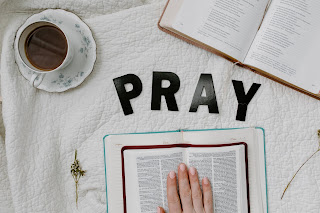Jeremy, the prototype of a man who is tall, dark, and handsome, and just beginning to enter middle-age, begins his session by saying, “I won’t be here for the next three weeks. I’ll come back in December.”
He squirms in his chair. “Umm, no. No, I just figured I could do with a little break.”
“Because?”
He crosses his legs, uncrosses them, then crosses them again. “It’s just beginning to be a bit too much.”
“What’s the ‘it?’”
“This,” he says, gesturing around my office.
“And what’s making it too much?”
“That,” he says brusquely, gesturing toward me with his chin.
“I’m too much.”
More squirming. “Not you exactly, just this, this questioning, probing, always searching for something more, something deeper.”
I try to think what might have occurred in our last few sessions that may have brought about Jeremy’s desire to flee. “Is there something that happened that made you feel I’m too overbearing, too intrusive?”
“I knew you’d say this was about my mother!” Jeremy says angrily.
Although I hadn’t been thinking about his mother, I remain silent, waiting to see what might develop.
“It’s not about my mother. I haven’t spoken to my mother in weeks. I decided to take a break from her too!” He pauses, taking in what he’s just said. “Shit!! I just agreed with you, didn’t I? This could come straight out of a Woody Allen movie!”
I smile. “And like in a Woody Allen movie, I’m going to continue digging. Is it that I’m feeling like your mother or have you experienced me as being more intrusive lately? Or did something happen with your mother?”
“I don’t want to. I don’t want to keep thinking and thinking and trying to figure things out. It’s enough already. I need a break!”
I feel frustrated and annoyed and find myself unable to stop. “Can you at least humor me and help me understand why this has come up right now?” As he is about to respond, I realize that I am indeed duplicating his relationship with his mother and say, “Wait! Let me pull back. First, I realize I am repeating exactly the relationship you have with your mother. I’m coming after you more and more. And the more I come after you the more you resist and the more you resist, the more I come after you. But, and maybe this is the piece you need to own. You’re the one who has put up an unbreakable wall. You’ve said ‘no matter what you say or do, I’m not telling you.’ You may have very good reasons for erecting that wall in the past, but now it feels more like a two-year-old who’s having a tantrum. Which doesn’t excuse my behavior of coming after you. I need to look at that myself and figure out why I couldn’t just pull back and let you tell me in your own time.”
“That’s a lot to take in.” Pause. “I do appreciate your saying that last part, that it’s not all me, that something got kicked up in you as well. It helps break the cycle you were referring to – chased after, run away; run away, get chased after.”
Long pause.
“I think I know what happened,” he continues. “I did have a
conversation with my mother. But before that I broke up with Charlene. I broke up with Charlene for exactly the reason we’re talking about. I told her I was going out with some friends and she asked where we were going. I wouldn’t tell her. We were only going out drinking, although Charlene did think I drank too much. Anyway, I wouldn’t tell her and she came up with more and more preposterous guesses – going to a strip club, hiring prostitutes, etc. It was ridiculous. The more she came at me, the more intransient I became until I finally said, ‘That’s it, we’re done!’ My mother called the next day and began right away bugging me about what had happened with Charlene and when was I going to settle down and give her grandchildren. I hung up on her.”
“So you were tired of all these pushy women, myself included.”
“Exactly!”
“I wonder if you’re so afraid of all these pushy women that you erect barriers to protect yourself or whether you erect those barriers so that women WILL come after you so that you can be ‘justified’ in rejecting them.”
“Why would I do that?”
“We’re almost out of time and you’ll need to tell me whether you’ll be here next week or not, but I think you might want to reject them so you never have to deal with the need for genuine connection that exists within you.”
“Wow! That’s a lot to digest”
“Yes, it is. And if you want to take some time to digest it, that’s fine and if you want to come in next week that’s also fine.”
“Can I think about it and call you?”
“Yes.”



















